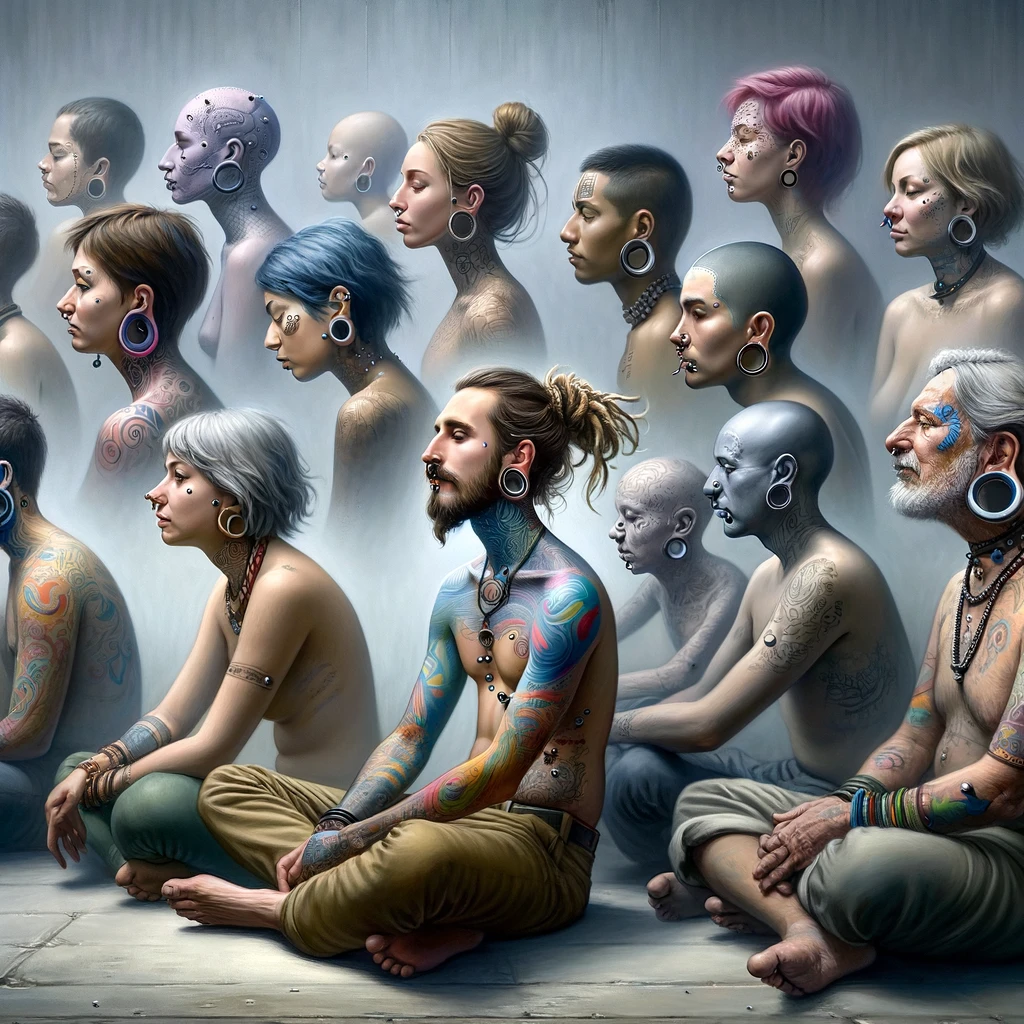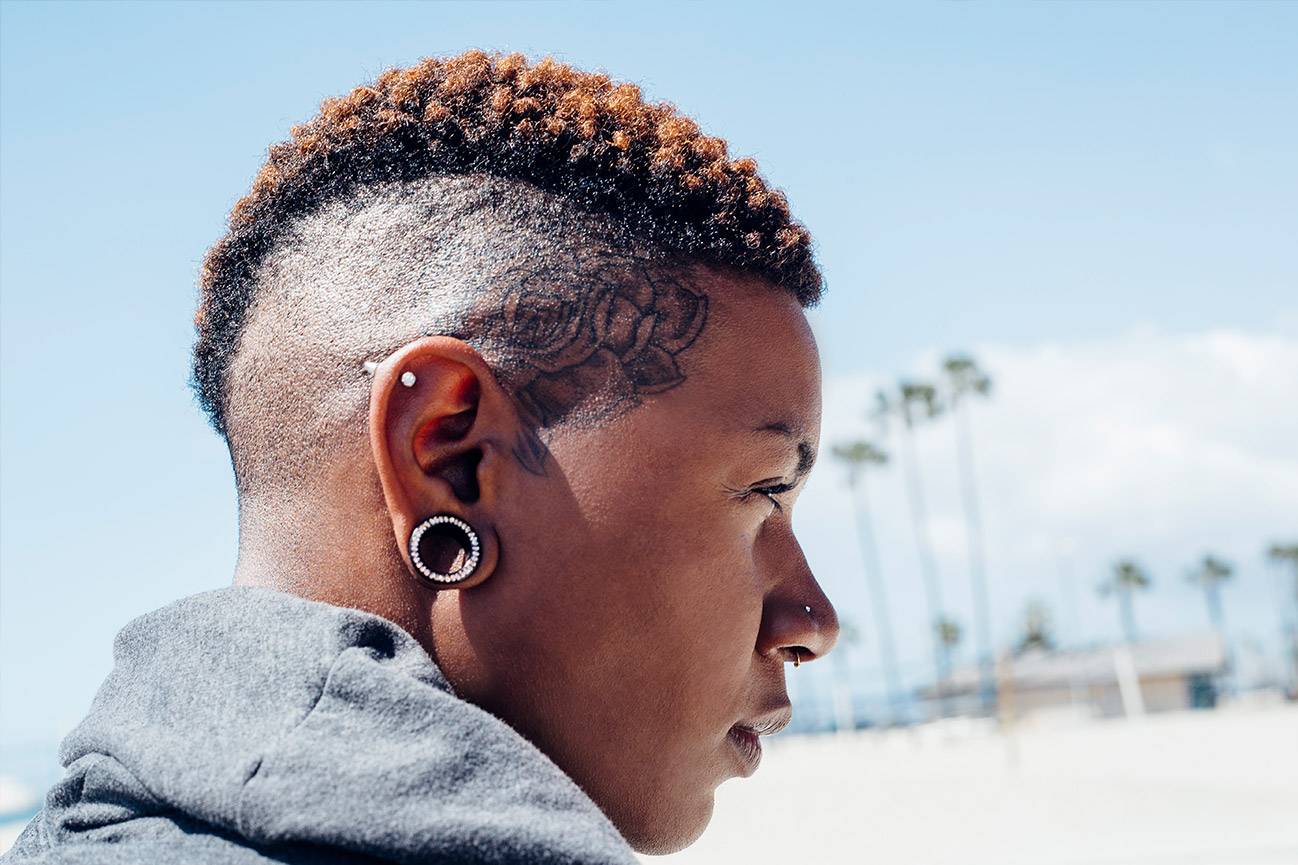Body piercings can be seen as a form of self-expression, a way to take ownership of your body and showcase your identity. While often perceived as a modern trend aligned with fashion and aesthetics, the act of piercing one’s body has historical roots that tie into various cultural, religious, and social significances. Today, whether you’re considering an ear piercing in Austin or any other type of body modification, a piercing may represent an individual’s search for self-identity or a form of personal adornment, but psychological factors often drive these decisions.
Psychology plays a significant role in why you might choose to get a piercing. It’s not just about how it enhances your appearance; it’s also about how it makes you feel. The act of piercing can serve as a rite of passage, a marker of life transitions, or even a way to exert control over one’s body. For some, piercings can be a form of rebellion, a break from societal norms, or a reclaiming of the body after trauma.
The desire for piercings can also stem from the human penchant for adornment and the need to belong to a group. Adorning your body with piercings can connect you with a community, a subculture, or a tradition. It can be an outward sign of inner emotions or a silent statement that speaks volumes about personal values. Understanding the psychological underpinnings behind body piercings can offer you deeper insights into the complex relationship between mind, body, and the expression of the self.
Cultural and Personal Significance of Piercings
Piercings serve as a form of self-expression reflecting cultural history and personal values, while also impacting notions like social status and individual identity.
Identity and Autonomy
Individuality and Control: You may choose piercings as a form of body modification to showcase your individuality or to exercise control over your body. The act of getting pierced can be a declaration of autonomy, marking the body in a way that signifies self-esteem or personal achievement.
Stigma and Self-Esteem: Despite being a popular form of self-expression, piercings can sometimes attract stigma. However, by embracing this aspect of your identity, you often reinforce your self-esteem, challenging societal norms and affirming your sense of self.
Social Affiliation and Body Modification
Subcultures and Affiliation: Your piercings often signal your affiliation with certain subcultures or social groups, indicating shared values or beliefs. This body modification can act as an identifier, connecting you with others and distinguishing you from the mainstream.
| Subculture | Common Piercings | Implied Values |
| Punk | Nose, Septum | Rebellion |
| Goth | Lip, Eyebrow | Aesthetics |
| Hip Hop | Ear (lobe or cartilage) | Status |
Social Status: In many cultures, certain piercings can signify social status or rites of passage. For example, in some societies, ear piercings are traditional for young women as a symbol of maturity.
The History and Evolution of Piercing
Cultural History: Piercings have a rich cultural history spanning thousands of years across various civilizations. From ancient rituals to symbols of nobility, piercings have been imbued with significant cultural meaning.
Ancient Practices: Ear and nose piercings found in ancient texts and historical records signify their longstanding cultural significance.
Evolution: Over time, the meaning and perception of piercings have evolved. What was once a cultural rite is now also a form of modern expression.
Subcultures and Mainstream: While piercings originated within specific cultures and subcultures, they have traversed into mainstream society, broadening their significance and acceptance.
Psychological Implications
When considering the psychological implications of piercings, it’s vital to reflect on the ways they impact perception, emotional well-being, and risks. These can intertwine with aspects of self-perception and identity.
Perception and Judgment
You might notice that society often has stereotypes associated with piercings. Depending on their location and style, piercings can influence how others perceive you, sometimes affecting social opportunities or employment. Self-identity can be reinforced or challenged by these perceptions.
Stereotyping and Prejudice: People with visible piercings might be subject to snap judgments.
Influences on Self-Perception: Your choice of piercings can shape how you see yourself, reinforcing or altering aspects of your body image.
Emotional Significance and Healing
The act of getting pierced can hold significant emotional importance for many individuals. It may represent a form of healing, particularly after personal losses or trauma. For some, the physical act of piercing can be a cathartic experience, and for others, it’s a mindful decision to reclaim control over their bodies after periods of anxiety or depression.
Catharsis and Healing: The piercing process can serve as a release or transformation.
Control Over Self-Image: Customizing one’s body can be empowering and impact self-perception positively.
Risks and Considerations
Deliberate reflection is essential before deciding to get a piercing due to potential risks. These can include infections, allergic reactions, or the exacerbation of psychopathological conditions like self-harm. There’s also a component of risk-taking behavior involved, which could be connected to sensation seeking.
Potential Physical Health Risks: Allergic reactions, infections, scarring.
Psychological Risks: Examine your motivation—understand the difference between self-expression and potential signs of deeper psychological issues.
A Psychological Exploration Beyond the Surface
One of the primary psychological drivers behind piercings is the desire for self-expression and individuality. In a world where conformity is often encouraged, piercings offer a means to stand out and assert one’s unique identity. By choosing the location, style, and number of piercings, individuals can create a personalized look that reflects their personality, values, and beliefs. This form of body modification allows them to take control of their appearance and present themselves to the world in a way that feels authentic and empowering.
The social aspect of piercings cannot be overlooked, as they often signify belonging to a particular subculture or community. Within certain groups, such as punk, goth, or alternative scenes, piercings serve as a visual marker of shared values, aesthetics, and lifestyles.
By adorning their bodies with specific piercings, individuals can signal their allegiance to these communities and foster a sense of connection and camaraderie with like-minded peers.
In conclusion, the psychology behind piercings extends far beyond mere aesthetics. From self-expression and individuality to coping with emotional pain and fostering social connections, the motivations for body modification are as diverse as the individuals who choose to embrace this practice.
As society continues to evolve and challenge traditional norms, it is essential to approach piercings with an open mind and recognize the complex psychological landscape that underlies this increasingly popular form of self-expression.




